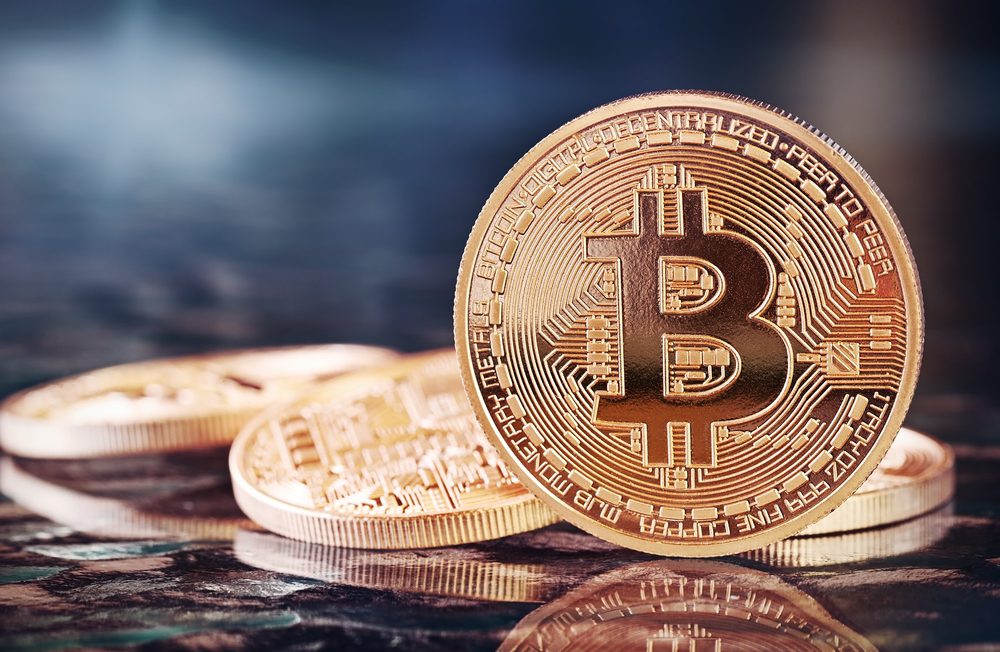Bitcoin
On August 18, the price of the Bitcoin dropped from $492.95 to $435.60 – a drop of nearly 12 percent. CoinDesk is a leading website that tracks news, prices, and information on bitcoins and other digital currencies. According to CoinDesk, this latest fall took the virtual currency to its lowest value since May. This fall comes on the heels of a steady decline in the value of bitcoins in recent weeks.
After the collapse of Mt. Gox – the Bitcoin exchange – in February 2014, the value of the Bitcoin had been relatively stable. Given that bitcoins had a peak trading value of $1,165.89 in November 2013, it is easy to understand the hype around this digital currency.
What are Bitcoins?
In 2008, a software developer called Satoshi Nakamoto detailed the Bitcoin as a software-based online trading system. The following year, Nakamoto introduced the Bitcoin as an open-source software. The objective behind creating the Bitcoin was to create a currency that:
– Was easy to transfer electronically
– People could transfer instantly
– Levied very low transaction fees and,
– Was independent of any centralized authority or institution
Like dollars and euros, bitcoins are a form of currency. However, unlike euros and dollars, nobody prints bitcoins. A Bitcoin is a form of digital currency (or cryptocurrency). People create and hold it electronically. Centralized banks or federal bodies have conventionally printed currencies around the world. However, no single institution controls the Bitcoin network.
How are Bitcoins Created?
As mentioned earlier, nobody prints bitcoins. Instead, an open community of people create bitcoins digitally. These individuals mine bitcoins digitally by using computing power in a distributed network. They offer their computing power for verifying and recording payments into a public ledger, called the block chain. People refer to this process as mining. In return, these individuals receive freshly created Bitcoins as rewards.
To obtain Bitcoins, people do not need to resort to mining. Instead, they could also purchase Bitcoins through fiat money. Alternatively, they could obtain bitcoins in exchange for products and services.
What is the Mechanism Behind Producing Bitcoins?
The blockchain contains details of all Bitcoin transactions. About six times an hour, people add a block of accepted transactions to the blockchain. Thereafter, they publish this to all network nodes. This process enables bitcoin software to assess when users have spent a specific amount of bitcoins. Bitcoin software often stores its own copy of the blockchain. This enables it to verify the ownership chain behind each Bitcoin amount. This is why bitcoins only exist in the blockchain.
Miners help in maintaining the blockchain. They process payments by verifying that each transaction is valid. Then, they add the valid transactions to the blockchain. In return, they receive freshly created bitcoins, in addition to any transaction fees. Currently, these miners receive 25 newly created bitcoins for each block they add to the blockchain.
This might lead you to believe that anyone could produce an infinite number of bitcoins. However, this is not true. According to the bitcoin protocol, the reward for adding a block reduces by half every four years. At this rate, the distribution of the reward is likely to terminate in the year 2140. By that time, there would be approximately 21 million bitcoins (i.e. 21,000,000 BTC) in circulation.
What are the Main Characteristics of Bitcoins?
Users mining bitcoins use a variety of complex software programs, which follow a mathematical algorithm or formula. This formula is freely available as well as open-source. As a result, anyone can have a look at it or check it. Here is a list of some of the main characteristics of this cryptocurrency:
– Easy to Set Up: Financial institutions have their own processes and timeframes before you can open your account. Setting up a Bitcoin address takes just a few seconds. That too, without your having to pay any fees.
– Provides Anonymity: Bitcoin addresses have no links to names, addresses or any other details through which someone could identify you. Therefore, you could hold multiple bitcoin addresses and retain your anonymity. In addition, you handle the entire bitcoin transaction yourself. As a result, you do not need to rely on third parties, as is the case with checks and credit cards. Only an anonymous miner verifies your information. Even the recipient is unlikely to know anything about you unless you choose to disclose any information yourself.
– Is Transparent: While it does offer some level of anonymity, the blockchain contains details of all transactions that take place in the network. Therefore, people can find out all details about publicly used bitcoin addresses. However, they cannot link you to a particular Bitcoin address.
– Extremely Fast: Bitcoin networks do not take days for processing payments, unlike banks. Therefore, a payment often reaches the recipient within seconds. Typically, the bitcoin network broadcasts transactions within seconds and verifies them in an hour’s time. In fact, recipients can receive bitcoins even if they have switched their computers off.
– Nominal Transaction Fees: Bitcoins levy a nominal transaction fee, unlike credit card transactions. In some cases, you might not need to pay any bitcoin transaction fees at all.
– Security Guaranteed: People use credit cards for making purchases today. However, using credit cards online remains fraught with risk. When credit card networks transmit information over the internet, anyone could devise ways to steal your information. With bitcoins, you don’t need to give up any personal information. Instead, you have a public key i.e. your bitcoin address, which is visible to everyone. You also have a private key, known only to you. When you send bitcoins, you sign the transaction using a combination of your public and private key together and apply a mathematical function to them. The ensuing certificate verifies that you are the source of the transaction, without transmitting any of your personal details.
– Irreversible in Nature: A caveat associated with bitcoins is that these transactions are irreversible in nature. As a result, once you send bitcoins, you cannot retrieve them unless the recipient decides to return them.
– Not Centralized: No single authority controls the bitcoin network. Each terminal that mines bitcoins by processing transactions constitute the network. In such a decentralized structure, no one central authority can ever hope to manipulate the valuation or the issuance of bitcoins. In short, not even the government can take your bitcoins away from you.
– Not Inflationary in Nature: Governments usually print as much fiat currency as they like. By printing more currency than required, they could create an inflationary situation. Inflation reduces the buying power of people. However, the makers of bitcoins specified a cap on the maximum number of bitcoins in existence i.e. 21 million bitcoins. As a result, inflation is unlikely to take place in the world of bitcoins.
How Can You Buy Bitcoins?
You could purchase bitcoins from exchanges or directly from sellers too. Payment options include wire transfers, cash or credit/debit cards. However, before you purchase bitcoins, you need a place to store them. For this, you need a bitcoin wallet. This could be:
– An online, web-based service or,
– A software wallet that resides on the hard drive of your computer
What Can You Purchase with Your Bitcoins?
As the popularity of bitcoins increases, the number of merchants accepting bitcoins also continues to rise. Many merchant sites accept bitcoins in exchange for products and services today. Interestingly, the list of merchants accepting bitcoins includes several noted retail giants too.
DISH Network used to be the biggest bitcoin-accepting business earlier. Currently, Dell has that distinction. Overstock, a retailer that offers a variety of products ranging from jewelry to electronics also accepts bitcoins. Another online retailer of computers and consumer electronics, TigerDirect, also accepts payments made in bitcoins.
You could even consider purchasing gift cards with your bitcoins. Companies like Gyft, Giftcards, GiftCardZen etc. accept bitcoins as payment for gift cards. You could use the gift cards at major retail stores like Amazon, Nike, Walmart etc.
Despite the current buzz around bitcoins, the fact remains that bitcoins are very volatile in nature. As exhibited by the drop in prices on August 18, your collection of bitcoins could lose its value very quickly. Equally, it could rise phenomenally too – as was the case in November 2013.
Experts declare that as the number of people joining the network increases, the value of the Bitcoin will also become more stable. Therefore, novice buyers need to avoid spending significant sums of their hard-earned money on purchasing bitcoins. This is especially so if they purchase bitcoins without seeking the appropriate levels of guidance. When the going is good, no one will complain. However, when the value sinks (as it did on August 18), the unwise investor could end up losing more than was bargained for.
Tips
You may also be interested in reading an in-depth article on Investments For Beginners, which opportunities you have to grow your income and get a better insight into how the system works.









